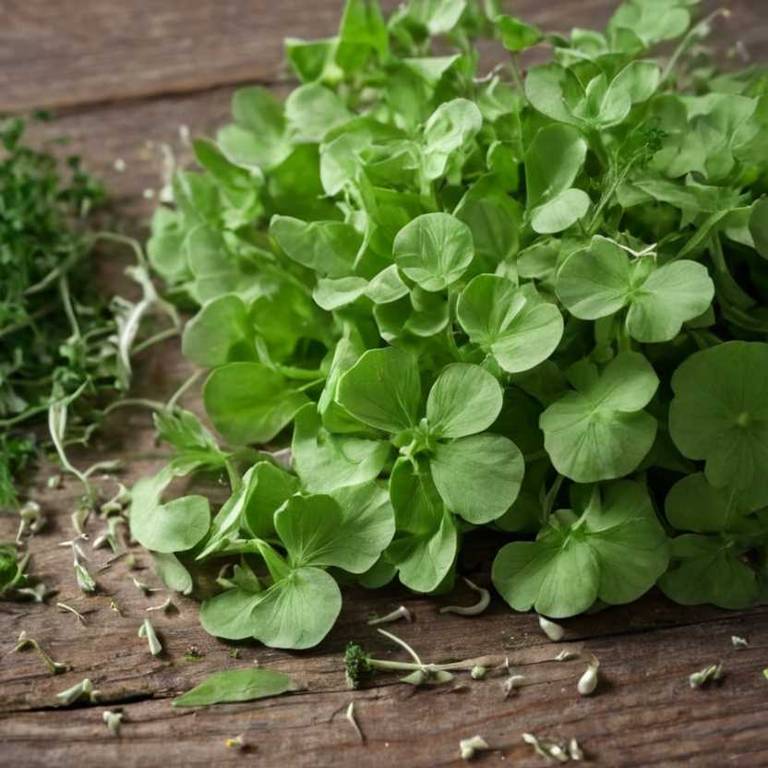Garden Nasturtium (Tropaeolum majus)
Garden Nasturtium (Tropaeolum majus) is a member of the Tropaeolaceae family, native to South America, Central America, and Mexico. Traditionally, its leaves, flowers, and stems have been used for infusions, decoctions, and culinary uses.
This herb is particularly valued for its anti-inflammatory, diuretic, and bitter actions, and has a long history of use in european herbal medicine, native american herbal medicine, and traditional chinese medicine.

Quick Facts / Key Information
| Common Name | Garden Nasturtium |
|---|---|
| Scientific Name | Tropaeolum majus |
| Plant Family | Tropaeolaceae |
| Genus | Tropaeolum |
| Species | majus |
| Native Range | South America, Central America, Mexico |
| Plant Parts Used | Leaves, Flowers, Stems |
| Primary Medicinal Actions | Anti-Inflammatory, Diuretic, Bitter |
| Primary Traditional Systems | European Herbal Medicine, Native American Herbal Medicine, Traditional Chinese Medicine |
| Historical Preparation Methods | Infusion, Decoction, Culinary Use |
Botanical Identity
- Scientific Name
- Tropaeolum majus
- Common Name
- Garden Nasturtium
- Synonyms / Alternative Names
- Garden Nasturtium, Indian Cress, Indian Cress
- Plant Family
- Tropaeolaceae
- Genus
- Tropaeolum
Botanical Description
- Growth Habit
- Annual herbaceous plant.
- Height
- It typically grows to a height of 30 to 100 centimeters.
- Leaves
- Ovate leaves with upper surface green and lower surface lighter green, bearing prominent stomatal bands.
- Flowers
- Inflorescence consists of solitary, zygomorphic flowers with orange to red petals, five sepals, and a distinctive yellow glandular structure at the base of the calyx.
- Stems
- Erect growth habit with opposite branching, smooth surface, and presence of swollen nodes.
Traditional Uses / Historical Use
Traditional Systems
- European Herbal Medicine
- Native American Herbal Medicine
- Traditional Chinese Medicine
Historical Preparation Methods
- Infusion
- Decoction
- Culinary Use
- Poultice
Medicinal Actions
- Anti-inflammatory
- Historically regarded as a warming anti-inflammatory, in tissue-soothing contexts.
- Diuretic
- Traditionally described as a gentle diuretic, for elimination-focused applications.
- Bitter
- Commonly referenced as a mild bitter, for flavor-based applications.
- Carminative
- In herbal literature, noted as a calming carminative, in relation to gastrointestinal comfort.
Active Compounds
- Flavonoid
- A widely occurring class of plant polyphenols found in leaves, flowers, and fruits.
- Coumarin
- Plant-derived compounds often associated with fragrance-related chemistry.
- Phenolic Acid
- Simple phenolic molecules widely distributed across plant tissues.
- Tannin
- Naturally occurring polyphenols widely distributed in woody and leafy plant parts.
Modern Research Overview
Contemporary research on this plant includes areas such as chemical analysis, laboratory-based studies, and observational research. Detailed summaries of published findings are not included at this stage and will be added during future content updates.
Safety & Contraindications
- General Precautions
- Some general precautions have been associated with the use of this herb.
- Contraindications
- Contraindications for this herb are not clearly established in available sources.
- Allergies
- Allergic reactions associated with this herb have not been well documented.
- Drug Interactions
- Interactions between this herb and prescription medications are not clearly established.
- Toxicity
- Available information regarding the toxicity of this herb is limited.
- Pregnancy & Breastfeeding
- Safety during pregnancy and breastfeeding has not been well documented.
Preparation & Usage Methods
- Infusion
- Water is poured over plant material and allowed to steep before straining.
- Decoction
- Plant material is simmered in water to extract compounds from tougher parts.
- Poultice
- Plant parts are crushed or moistened and placed directly on the body.
- Culinary Use
- A preparation involving the use of plant parts in cooking or food production.
- Powder
- Powdered preparations use finely milled plant parts.
Growing, Harvesting & Storage
Growing / Cultivation
- Soil
- Prefers loamy soil with well-drained conditions. Typically grows best in organically rich soils.
- Sunlight
- Thrives in full sun. Tolerates full sun to partial shade.
- Watering
- Prefers well-balanced moisture levels. Tolerates variable moisture levels.
Medical Disclaimer
The information provided on this page is for educational and informational purposes only. It is not intended to diagnose, treat, cure, or prevent any medical condition. Always consult a qualified healthcare professional before using any herb for medicinal purposes.